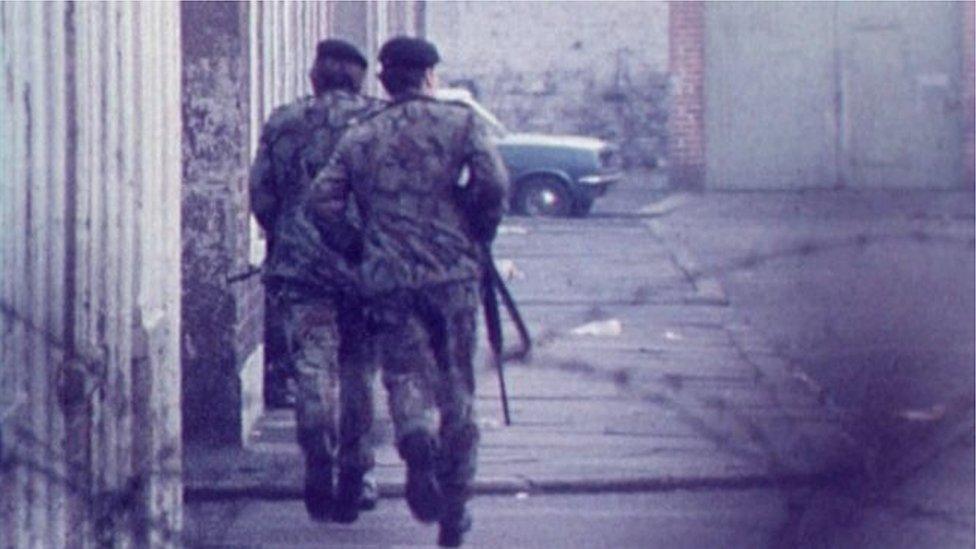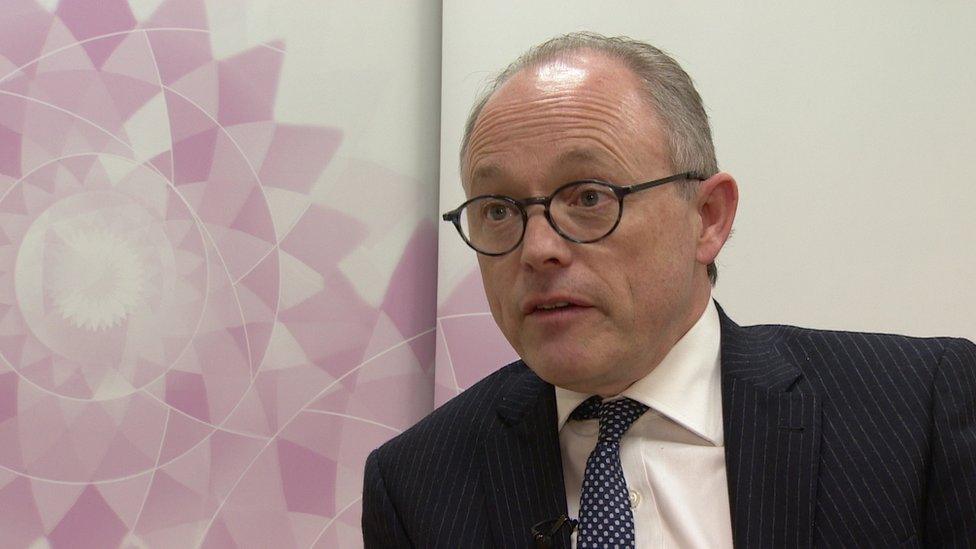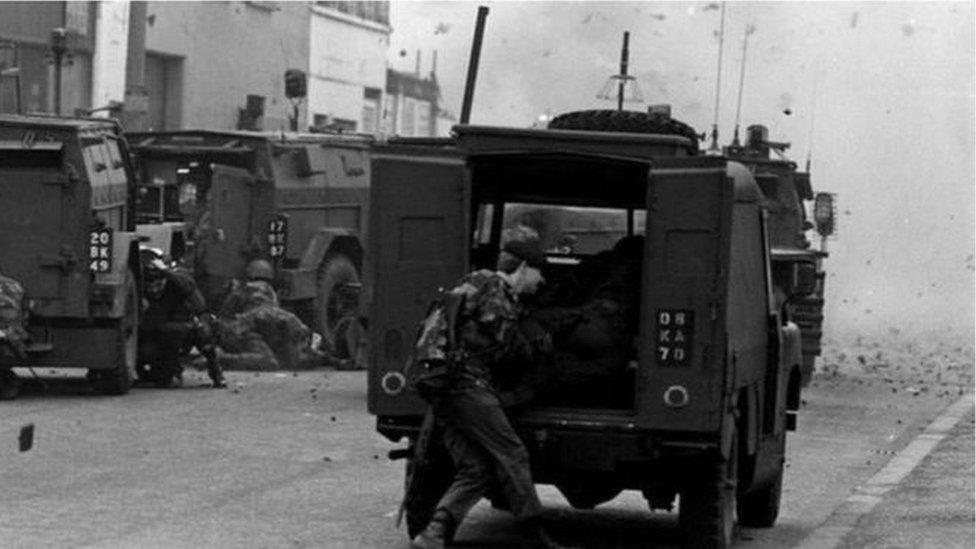Barra McGrory: Troubles amnesty 'challenging'
- Published

Barra McGrory leaves his post at the end of this year
A partial amnesty for the security forces in legacy cases could be open to challenge, the outgoing director of public prosecutions (DPP) has said.
Barra McGrory leaves his post at the end of this year.
Conservative and unionist MPs want a "statute of limitations" to prevent security force members being prosecuted for offences early in the Troubles.
Last week, both the leaders of Sinn Féin and the DUP said they had concerns about a proposed amnesty.
A government source told the BBC its preferred approach remained the proposals set out under the Stormont House Agreement, but that the government wanted, in its consultation, to ask members of the public what they thought about a statute of limitations.
The 2014 Stormont House Agreement included a range of measures to address the past, including:
An Historical Investigations Unit (HIU) to search for new opportunities to prosecute
A Commission on Information Retrieval to allow relatives of the dead and injured to privately receive information about the deaths of loved ones
'Personal views'
DUP leader Arlene Foster said she understood the motivation behind the proposed statute of limitations, but was concerned it could lead to a wider amnesty which might deprive Troubles victims of the chance of justice.
In his final interview as DPP, Mr McGrory said a partial amnesty would be "difficult to manage".
"I'll say no more than that at the minute," he told BBC News NI.
"I have personal views on broader legacy issues which I'll consider saying something about next year in my private capacity."

He said he hoped his legacy would be a leaner, fitter Public Prosecution Service (PPS)
Mr McGrory said a statute of limitations would certainly invite challenges, "but it's not for me to say whether it's legal or not".
"If it's a statute, it's a statute so it would have gone through parliament," he said.
"In terms of the international legality of it - it would be questionable."
He said about a quarter of his total workload was taken up with dealing with legacy issues.
He hoped his legacy would be a leaner, fitter Public Prosecution Service (PPS), he added, but in terms of legacy cases the current workload was unsustainable.
"It's a pressure we could do without, but I don't say that in the sense that we don't want to have to do that work or make those decisions - of course we do: That's our job," he said.
"But they were never resourced when the PPS was set up in its current capacity, no-one anticipated or catered for the current legacy burden that is now on us. So that has made an impact."
Mr McGrory faced criticism earlier this year under parliamentary privilege by an MP.

Soldiers in Northern Ireland pictured during the Troubles
At the time, Secretary of State James Brokenshire said he had "some concerns about imbalance within the system, but he would not comment on any individual decision".
Mr McGrory denied the criticism had forced him out of office.
"I've expressed my views on those criticisms that they were unfounded, not based on any evidence and in fact flew quite contrary to the evidence of our decision making," he said.
"I felt that those who made those criticisms ought to have known better and were in positions of responsibility and leadership that would suggest to me that they shouldn't be making comments of that kind without the evidence to back it up.
"But there you are, we dealt with it at the time and we moved on."
If anything, he said, he had stayed a bit longer than intended to take some difficult decisions.
He now plans to return to private practice, but says he is not handing his successor a poisoned chalice when it comes to the difficult decisions to be taken on Troubles-related killings.
"Something will give, something will have to be done to deal with the legacy issue," he said.
"The PPS will need to be resourced and it will also need political support."
Veterans have argued that it was unfair to charge pensioners over crimes committed early in the conflict.
The UK Government has said its preferred option for addressing the past is the 2014 Stormont House Agreement between the local parties, which did not include the proposal envisaged by some Conservative MPs.
Their opinions are well-known, including within government.
Mr McGrory said around a quarter of his total workload was taken up with dealing with legacy issues.